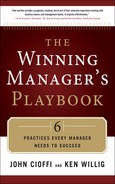Hire the right person, not the right resume
The resume is a powerful document. It’s been around for decades, and it shows little sign of disappearing any day soon. It’s usually a candidate’s first means of creating an impression with a desired organization, and many companies rely heavily upon it to create a picture of the candidates that apply to them.
Candidates go to great lengths to craft a resume that stands out, extorts their virtues, and seems to position them perfectly for the position they seek. There are books, Internet sites, and consultants that focus on helping candidates craft just the right tone, content, and format.
In turn, companies quickly screen out those candidates whose resumes don’t show the right stuff. Then, they often look even harder at the remaining resumes to see if the candidates have already accomplished a similar position or if the details of the resume point to a fatal flaw.
You can see that a lot of calories are burned up in these activities by candidates as well as companies, all of whom take this document seriously. This would be fine, actually, if the resume were an accurate predictor for how well the candidate will perform in the position you seek to fill. Too often, however, that is not the case.
Now, don’t get us wrong—we think that the resume can be a useful starting point for understanding a candidate’s history and accomplishments (assuming the resume is truthful). We just want to caution you against taking it at face value—you need to look beyond the resume and discover for yourself the candidate’s natural abilities that might or might not allow her to be successful in the position you are filling.
We can imagine you saying, “Of course I’ll do that, I didn’t fall off a turnip truck last week.” And we hope that’s true (that you’ll do that, and that you didn’t fall off a turnip truck last week). Unfortunately, we’ve seen too many managers fall into the trap of believing the resume is a predictor of success.
So this must be a unique situation, right? No one else would come to such conclusions, would they?
If only that were true. This kind of thinking just takes different forms. The resume influences our thoughts and conclusions so strongly that sometimes it is difficult for people to be as skeptical as they should. Using the resume as their guide, they sometimes hire the person they imagine—the person that they want to believe can accomplish the position successfully.
There is one more issue related to the resume that you should consider: truthfulness. We suspect that people have embellished their resumes since the first one was written, but you want to be sure that you hire someone that is truthful (their words match the facts). You and your team will be working with this person, and you need to know that he can be trusted.
We caution you against believing that a lie on the resume is acceptable—that the person will be truthful to you in his new position, although he lied to get that position. We think this is delusional and that this untruthfulness is a key issue of principles. You can’t afford it.
So, please continue to use the resume as the candidate’s explanation of past achievements. Verify the facts, determine the candidate’s skills and natural abilities, and assess the candidate’s ability to work effectively in your environment.
However, even if it turns out that everything on the resume is true, remember the caveat tagged onto major financial offerings: “Past performance is no guarantee of future results.” Your environment is different than the candidate’s current environment, and those differences may be significant.
That’s why understanding the candidate’s underlying natural abilities is so important. You need to know if they have the tools to survive and excel in your environment.
